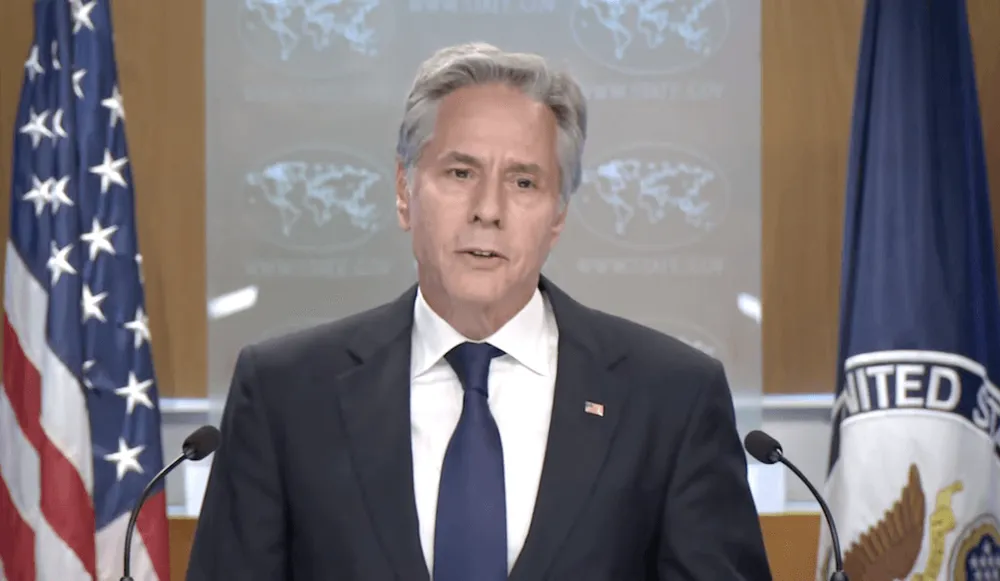Russia’s RT news agency has ‘cyber operational capabilities,’ assists in military procurement, State Dept says
A Russian media outlet accused of running a covert influence operation in the U.S. is conducting similar activities elsewhere around the world — with the help of a cyber unit tied to Russian intelligence services, the Department of State said Friday.
In a statement to reporters, Secretary of State Antony Blinken said that the Russian government embedded “a unit with cyber operational capabilities” within the news agency RT in the spring of 2023, with the full knowledge of the organization’s leadership.
RT also secretly assists in military procurement for Russia’s war on Ukraine, Blinken said.
Information produced through the cyber unit “flows to Russian intelligence services, Russian media outlets, Russian mercenary groups, and other state and proxy arms of the Russian government,” Blinken said.
The unit is a “cyber-intelligence gatherer — so it’s using cyber tools to gather information, and then use that information in some form,” potentially through activities like damaging information leaks, said James P. Rubin, special envoy and coordinator for the department’s Global Engagement Center, at the same briefing. Rubin declined to answer a question about whether the unit is still active.
One of the unit’s projects is a “large online crowdfunding program, in Russia, operating within RT and through social media channels, to provide support and military equipment — supplies, weaponry — to Russian military units in Ukraine,” Blinken said, including body armor, night-vision gear and drones. The crowdfunding program is out in the open, he said, but RT’s support has been hidden.
The U.S. indicted two RT employees last week on charges of helping run a $10 million operation to covertly spread pro-Russian narratives to U.S. audiences. Friday’s announcement “is about the rest of the world,” said Assistant Secretary of State James O’Brien, when asked by reporters about how the latest revelations differed from last week’s actions.
Examples of global activity include a platform called African Stream and the English-language site Red in Germany, the State Department said. Blinken said that African Stream positions itself as an independent media voice for Africans, but “in reality, the only voice it gives is to Kremlin propagandists.”
The rest of the world saw the U.S. actions against RT, “and now we’re saying to them, this is what can happen to you: Unless you toe the Russian line, they’re going to use all of these tools” to try to disrupt societies, Rubin said.
The overall goals of the RT operation, Blinken said, are to manipulate democratic elections around the world. His statement specifically cited Moldova, referring to accusations by the U.S., U.K. and Canada in June that Moscow was meddling in that country’s presidential election, scheduled for October 20.
In response to the situation in Moldova, the U.S. Treasury Department issued sanctions Friday against Russian media operations. Russia’s plan there, the State Department said in a fact sheet, is “to attempt to foment unrest in Moldova, likely with the specific aim of causing protests to turn violent. RT is aware of and prepared to assist Russia’s plans to incite protests should the election not result in a Russia-preferred candidate winning the presidency.”
Blinken said that on Friday the U.S., U.K. and Canada launched “a joint diplomatic campaign to rally allies and partners around the world to join us in addressing the threat posed by RT and other machinery of Russian disinformation and covert influence.”
Joe Warminsky
is the news editor for Recorded Future News. He has three decades of experience as an editor and writer in the Washington, D.C., area. He previously he helped lead CyberScoop for more than five years. Prior to that, he was a digital editor at WAMU 88.5, the NPR affiliate in Washington, and he spent more than a decade editing coverage of Congress for CQ Roll Call.



